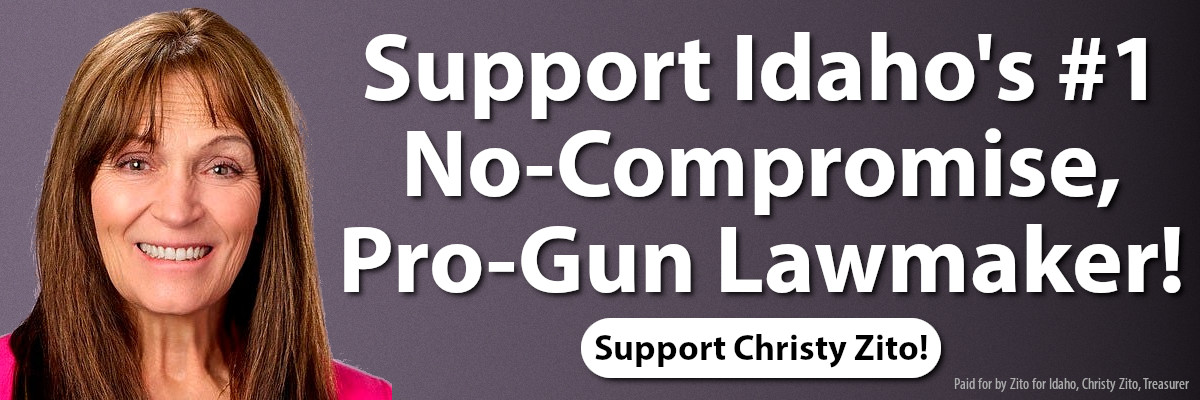
Op-Ed: Weeding Out the Frauds
By Brian Parsons • January 31, 2024Last week, I attended Bannock County’s quarterly Republican Central Committee meeting. It’s open to all registered Republicans, but I would have been blissfully unaware of this meeting if it weren’t for a few active committee members who gave me the heads-up. As I have complained in the past, the Bannock County GOP is a closed-off club that does its best to remain incognito and only jump through the bare minimum of hoops required to exist.
At this particular meeting was a presentation by the regional vice chair and fellow columnist Trent Clark on Republican ongoings in Bannock County. Of particular interest was a rule passed by the Idaho Republican Central Committee during the Summer of 2023. Article 13 of the Idaho Republican Party rules requires candidates who run for elected office as Republicans to sign a disclosure reinforcing their commitment to the Idaho Constitution and the Idaho Republican Party platforms. Article 20, Section 3 of the Idaho Republican Party rules creates a mechanism whereby local and state Central Committees can hold elected officials accountable for not following through with their commitment to uphold the Republican Party Platform. This mechanism includes censure and the ability to remove a candidate from the party’s ballot if they don’t represent the party in their elected position. Why does this matter?
As I noted in my prior piece, parties form based on voluntary association and commonly held beliefs. Two-thirds of all of Idaho’s Governors have been Republican, and the Republican distinction carries a lot of weight in electoral politics. A common moniker in Republican circles is the RINO or Republican In Name Only. This describes politicians who get elected as Republicans by Republican voters and then proceed to execute the duties of their office in a manner contrary to the shared beliefs of the Republican Party, and it’s happening at a staggering pace.
A recent study by the Institute For Legislative Analysis, an offshoot of the American Conservative Union, suggests that though a Republican Super Majority technically holds Idaho’s legislature, it is actually controlled in the Senate by Democrat-leaning legislators and maintains a much smaller majority in the House than Party affiliation suggests. When paired with Idaho’s significant registration crossover, whereby unaffiliated and Democrat voters cross the political aisle to have an undue influence in Republican Party politics, the ability of the Idaho Republican Party to adequately represent shared conservative beliefs is significantly hampered. The idea of voluntary association is drastically undermined. To date, the recourse voters have had was to remove these candidates from office, but the challenge has been overcoming money, name recognition, and cross-party voters.
A majority of American voters are uninvested voters. This isn’t a criticism or a fault. Few, if any, of us wish to dabble in the muck of electoral politics. It is the sausage-making part of civic engagement, and politics have become inescapable. They have come to consume society, including culture and entertainment, and the hope with every election is that it will be over and done with; we can take down all the obnoxious signs and return to the business of life. Unfortunately, what happens between those elections demands attention, so that what happens at the ballot box is impactful.
I applaud the steps taken by the Idaho Republican State Central Committee to bring another level of accountability to elected officials. The challenge presented in this scenario is the idea of a purity test and who is given the discretion to determine what is and what isn’t a Republican action. The answer to the who lies in local committee men and women who are your neighbors, and the what lies with the party platform. Defaulting to the RNC and the Idaho Republican Party platforms is a reasonable start. Article 13 should ensure that, at some level, elected officials affirm their commitment to our shared beliefs.
This Op-Ed was submitted by Brian Parsons and originally published on WithdrawConsent.org. Op-Eds do not necessarily reflect the views and opinions of those at the Idaho Dispatch.
Tags: American Conservative Union, Article 13, Bannock County GOP, Bannock County Republicans, Idaho Republican Party, Idaho Republican State Central Committee, Institute For Legislative Analysis, purity test, Republican In Name Only, Republican Party Platform, RINO, Trent Clark
5 thoughts on “Op-Ed: Weeding Out the Frauds”
Comments are closed.








Censure is not good enough.
Why aren’t the RINOs recalled?
And what amount of money is needed to stop Reclaim Idaho and ranked choice voting?
Instead of Medicaid, Reclaim Idaho should be a private charity disseminating its warchest for the most needy instead of permanent public assistance to citizens(?) who should be motivated to become self sufficient.
I have no problem with ASKING a candidate to sign this pledge. I have no problem with holding legislators accountable to their pledge. My problem lies with in attempting to remove or censure a local legislator by the local CC for “violating” said pledge. WHO gets to decide what is a violation? Are there instances set down in this rule? From MY experience as a member of my local CC, NO, the PC’s do not always represent their constituency. Sometimes they have no idea what their constituency truly believes they just happened to be the only people on the ballot for PC and use it as a means of activism to suit their own desires. I have seen a local CC attempt to “censure” a legislator for NO OTHER REASON than they did not like a certain vote. Nothing in the vote violated the GOP platform nor the Constitution, but a majority of the members present at the CC meeting didn’t like the vote. NONE of them asked the reason for the vote. None of them spoke to the legislator. Fortunately cooler heads prevailed and the vote FAILED as it should have. I know PC’s who would censure a legislator if his/her IFF score was below 90. I know PC’s who would censure a legislator if they received donations from certain “unapproved” lobbyists. I know PC’s who would censure a legislator if he or she looked at them the wrong way. I hope this rule has specific instances when a local CC could censure or attempt to remove a legislator otherwise I fear it will be used for vengeance, not legitimately.
Brother, you hit that nail on the head! There are few with a more vengeful attitude than many on the party leadership these days. At least, in Bannock, time isn’t wasted on belittling other Republicans, censuring, and threatening them. It’s sickening how the size of the Republican “tent” has gone from the size of a mess hall to smaller than a pup tent.
How many Idaho seniors have lost their Medicaid because of small increases
in their Social Security ? I don’t care about the increases just want the Medicaid
that helped with my medical bills.
I think this program should be investigated..
Is it going to the hundreds of illegals coming to Idaho.This is discrimination
against elderly who have paid to have this service.
every time I go to the store I see these people using our food stamps
for carts full of groceries. STOP the migration to Idaho.
I think censorship is good though it is a slap on the wrist but it brings AWARENESS to the oath breakers. The platform determines where it stands on the issues BUT the oath breaker should be given the opportunity to explain their stance. What good is an oath if they are not held accountable? We must have the ability to call out the imposters and let the record show their true colors so they can be voted out next round.